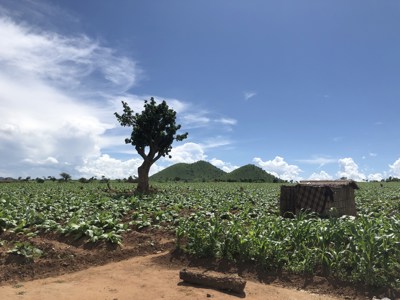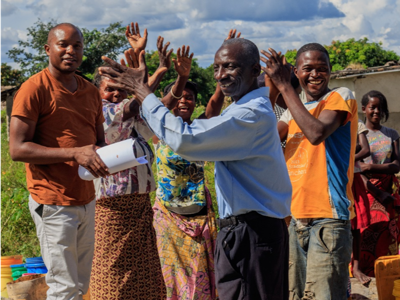
Court allows Malawian child farmer claims against British American Tobacco and Imperial to proceed
The High Court has dismissed an application to strike out the claim brought by more than 7,000 Malawian tobacco farmers against British American Tobacco and Imperial including over 3,000 children.
Posted on 25 June 2021
The application was heard at the High Court on 19 and 20 May 2020.
The two tobacco companies had asked the court to throw out the claims which are brought by tobacco farmers and their wives and children alleging that the companies are responsible for the farmers being exploited on the Malawian tobacco farmers. They also argue that BAT and Imperial have been unjustly enriched because the tobacco is being produced in conditions that amount to child and forced labour.
The High Court today dismissed the application to strike out the claims, on the grounds that the claimants had properly pleaded the central allegation that they had grown tobacco that had been purchased by BAT and/or Imperial and used by them to make cigarettes and other tobacco products. Mr Justice Martin Spencer commented that tobacco companies’ applications to strike out had been “misconceived”.
The tobacco companies had argued that the claimants should be required to set out all their evidence when they issued the claim. The judge said this was wrong as there is a difference in what evidence is needed when beginning a claim, versus what is needed to prove a claim at trial. Claimants are not required to have all the evidence needed to prove a claim at the outset of the legal action as this would be a massive hurdle to overcome and would significantly impede access to justice.
The claim will now continue and the next stage will be for the Court to set down directions for the case to progress towards a trial with the likely next step for the Defendants to provide defences to the claims.
In their legal case the farmers and their families allege that BAT and Imperial facilitate unlawful and dangerous conditions, in which they, having been trafficked from their villages, have to build their own homes, live on a daily small portion of maize, work 6am to midnight seven days a week, and have to borrow money to be able to feed their families throughout the season. Much of the time the farmers are paid nothing at the end of the season.
In addition, they claim that BAT and Imperial know, or ought to know, that the conditions they are faced with leave them no choice but to rely on their children to work as child labourers in extremely hazardous conditions, sometimes from the age of only three years old.
BAT and Imperial argued at the strike out hearing that the farmers had no evidence that the farms they worked on supplied tobacco purchased by their companies. Both Defendants claim in their annual reports and other corporate literature that they are able to trace the tobacco down to the farm level which should mean that they can verify who has grown their tobacco. However, in his judgment Mr Justice Martin Spencer referred to correspondence in which BAT admitted that “traceability down to the farm level” did not actually mean they could trace tobacco to the individual farmers.
Law firm Leigh Day, representing the farmers, argued that the farmers’ claims were well founded despite the fact that the tobacco growing industry is shrouded in secrecy and documentary evidence regarding tobacco supply chains is well hidden for commercial reasons and to avoid scrutiny of anti-competitive and unlawful practices.
Leigh Day argued in court that they had repeatedly requested information from Imperial and BAT to prove that their Malawian tobacco is not sourced from the farmers in the claim but they have consistently refused.
Martyn Day, senior partner at Leigh Day, said:
“BAT and Imperial make millions of pounds in profit each year and our clients believe much of this profit is down to the awful conditions that are present in their supply chains which use impoverished families to farm the tobacco and pay them a pittance to do so. It is not surprising that BAT and Imperial tried to get these very serious claims against them thrown out by the court. We are pleased that the court agreed with our clients that they have an arguable case which should be heard by the court.”
Oliver Holland, partner at Leigh Day said:
“Once again we see the information the multinational companies provide in their corporate materials in relation to human rights and environmental issues is misleading and untrue. This is the information that shareholders look at when deciding to invest in these companies. It takes cases like these and brave claimants to expose these untruths. We are now keen for these claims to proceed onto trial so that our clients can get some justice and put an end to the slave-like conditions in which our clients are forced to grow tobacco.”
Find out more

British American Tobacco and Imperial Brands
Leigh Day represents almost 2000 Malawian tobacco tenant farmers, including hundreds of children, in a legal action against British American Tobacco

Claim against tobacco giants by poverty stricken farmers in Malawi
Two of the world’s biggest tobacco companies are accused of making profits from tobacco that has been grown by child labourers and on farms where conditions force poverty stricken families into a life of debt bondage in a claim served this week.




